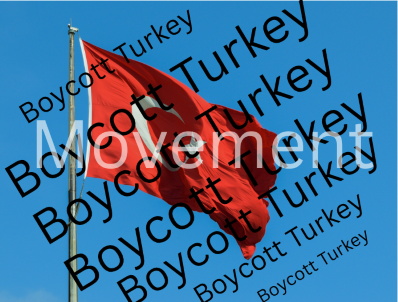
Turkey has remained pro-Pakistan, which has fueled the boycott mentality among Indian businesses and tourists
Boycott Turkey Movement -A massive boycott of Turkish goods and services has resulted from the current strained diplomatic relations between India and Turkey. This trend is a result of Turkey’s persistent backing of Pakistan in international fora, notably its position on Kashmir and opposition to India’s strategic objectives.
Turkey has remained pro-Pakistan, which has fueled the boycott mentality among Indian businesses and tourists, even though India provided humanitarian relief during the 2023 Turkey earthquake through Operation Dost.
Reasons Behind the Boycott
Numerous political and economic issues, including as Turkey’s pro-Pakistan stance—Turkish President Recep Tayyip Erdogan has frequently expressed support for Pakistan on the Kashmir issue, igniting tensions with India—are driving the Indian Boycott Turkey movement.
- India’s significant assistance amid Turkey’s crisis: Turkey maintains its diplomatic ties with Pakistan even though India’s Operation Dost provided disaster relief during the February 2023 earthquake.
- Trade restrictions and tourism decline: In an effort to reduce Turkey’s economic gains, Indian companies and travel firms are now aggressively halting Turkish imports and reservations.
Economic Impact of the Boycott on Turkey
The Boycott Turkey movement is already affecting key trade sectors:
- Decline in Turkish imports – Indian businesses have reduced purchases of Turkish marble, textiles, and apples, shifting to alternatives from Iran, Washington, and Indian states like Himachal Pradesh.
- Tourism hit – Major Indian travel agencies including EaseMyTrip and Ixigo have suspended bookings for Turkey, Azerbaijan, and China.
- Foreign exchange concerns – Turkey is facing economic instability, with the Turkish lira weakening and declining foreign reserves due to reduced trade.
India’s Response to Turkey’s Diplomatic Stance
India’s diplomatic frustration with Turkey escalated after Erdogan’s UN speech defending Pakistan on Kashmir and Turkey’s military partnership with Islamabad. In response:
- Indian business federations have publicly endorsed the boycott, encouraging traders to shift purchases.
- Alternative travel destinations are being promoted by public figures and influencers. Rupali Ganguly, an actress, advocated staying away from Turkey saying, “This is the least we can do as Indians.”
- Government officials are quietly signaling stronger trade diversification, reducing reliance on Turkish imports.
Conclusion
One of India’s most potent diplomatic and economic responses to Turkey’s pro-Pakistan posture is the Boycott Turkey movement. This boycott may cause Turkey to suffer long-term commerce and tourism losses as Indian travelers and traders aggressively sever relations.
India’s choice to curtail Turkish economic influence is a calculated strategy that demonstrates its dominance in international trade as geopolitical circumstances change.
Stay updated with the latest news on Rapido Updates. Keep yourself updated with The World, India News, Entertainment, Market, Gadgets, and many more.
Stay informed with the latest news and updates – only on Rapido Updates.
2 thoughts on “Boycott Turkey Movement: Why Indians Are Cutting Ties with Turkish Imports”